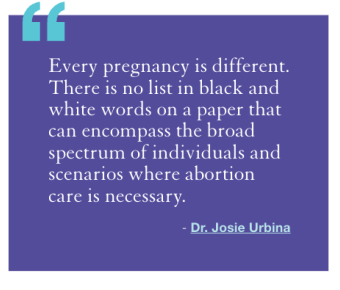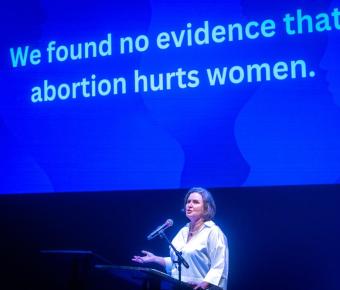HIVE helps people living with HIV achieve their family-building dreams
May 19, 2025
HIVE and their community will take part in this year’s SF AIDS Walk on July 20th. The event will be a celebration of their groundbreaking work, and an opportunity to make sure it continues.
Black Women Speak: An Abortion Storytelling Showcase
May 15, 2025
Join The UCSF Black Womxn's Health & Livelihood Initiative and Girlx Lab for Black Women Speak: An Abortion Storytelling Showcase. Listen to Black women share their stories as we journey to community healing and wellness. Food will be served and vendors will share information and products for...
What young people see as obstacles to UTI care
May 14, 2025
New research led by Jennifer Yarger, PhD, explores what young people perceive as barriers to care for UTIs.
Team Lily's innovative strategies to support pregnant people
April 30, 2025
The Foundation for Opioid Response Efforst (FORE), which awarded Team Lily one of their grants for programs developing innovative models to support people with substance use disorder, made a video highlighting the impact of their work.
New factsheet: All abortion bans harm patients
April 23, 2025
Our new resource highlights evidence showing that any limits on abortion care harm patients.
Investment needed to improve women’s pregnancy outcomes after fistula repair
April 10, 2025
New research led by Abner Korn and Alison El Ayadi of UCSF and Justus Barageine of Makerere University, Uganda, looks at the rates of pregnancy loss and stillbirth after fistula repair and what risk factors are associated with those outcomes.
What happens when someone can’t get an abortion? This play will show you
March 24, 2025
The Turnaway Study is breaking ground again —by bringing the research to life on the stage.
Room for improvement in person-centered maternity care around the world
March 21, 2025
Person-centered maternity care (PCMC) is respectful, responsive, and compassionate childbirth care. In a new paper by Osamuedeme Odiase and colleagues, researchers analyzed studies that use the PCMC scale around the world.
Join us for The Turnaway Play
February 19, 2025
Join the Bixby Center for a staged reading of The Turnaway Play. Based on the groundbreaking study conducted by Bixby researchers, the show tells the behind-the-scenes story of the study with humor and candor.
What physicians think about self-sourced and managed medication abortion
February 07, 2025
In a new paper, Jennifer Karlin, MD, PhD, and colleagues interviewed physicians about their attitudes toward SSMA







